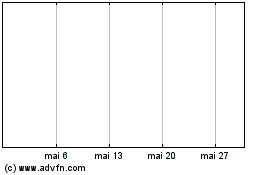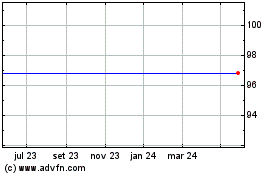Press Release: New Sarclisa subcutaneous formulation met co-primary
endpoints in the IRAKLIA phase 3 study in multiple myeloma
New Sarclisa subcutaneous formulation met
co-primary endpoints in the IRAKLIA phase 3 study in multiple
myeloma
- Sarclisa SC formulation added to Pd
for the treatment of R/R MM met the co-primary endpoints in the
IRAKLIA phase 3 study, demonstrating non-inferiority compared to
Sarclisa IV
- IRAKLIA is the first global phase 3
study to evaluate the SC administration of a cancer treatment via
an OBDS
- OBDS is an alternative delivery
method designed to improve the patient experience and currently
available SC administration
Paris, January 9, 2025. Results
from the investigational, randomized, open-label IRAKLIA phase 3
study demonstrated that Sarclisa administered at a fixed dose
subcutaneously (SC) via an on-body delivery system (OBDS) in
combination with pomalidomide and dexamethasone (Pd) met its
co-primary endpoints of non-inferior objective response rate (ORR)
and observed concentration before dosing (C trough) at steady state
compared to intravenous (IV) Sarclisa administered at a
weight-based dose in combination with Pd in patients with relapsed
or refractory multiple myeloma (R/R MM). Key secondary endpoints,
including very good partial response (VGPR), incidence rate of
infusion reactions and C trough at cycle 2 were also achieved. The
study is ongoing, and the full results will be presented at a
forthcoming medical meeting.
Sikander Ailawadhi,
MD
Professor of Medicine, Division of Hematology/Oncology at Mayo
Clinic Florida and principal investigator of the study
“The consistent overall response rate and comparable efficacy
and safety profile observed in the IRAKLIA study for subcutaneous
Sarclisa represent an exciting advancement, offering insight into a
potential new administration option for patients. The results from
IRAKLIA, in patients with relapsed or refractory multiple myeloma,
support the potential of an on-body delivery system to help ease
the delivery of a new formulation without impacting patient
outcomes.”
The IRAKLIA study was conducted using Enable
Injections’ enFuse® hands-free OBDS, which was designed
to administer high-volume medicines subcutaneously through an
automated drug delivery technology. The enFuse device leverages a
hidden and retractable needle that is thinner compared to commonly
used SC injection needles.
Houman Ashrafian, MD,
PhD
Executive Vice President, Head of Research and Development at
Sanofi
“We are fueled by our focus on innovation and finding
best-in-class solutions to help ease the burden of disease for
patients. The IRAKLIA study results are a prime example of what’s
driving our scientific engine. Being able to possibly bring a novel
option that helps reduce time in a healthcare facility is driven by
our patient and provider-centric mindset. We look forward to
sharing full results and working to bring this new advancement to
the multiple myeloma community.”
Additional studies evaluating Sarclisa SC
formulations across different combinations and lines of therapy are
ongoing. The safety and efficacy of Sarclisa SC and the enFuse
device have not been evaluated by any regulatory authority outside
of their approved indications. Regulatory submissions in the US and
in the EU are planned during the first half of 2025.
About the IRAKLIA study
IRAKLIA is a randomized, open-label, pivotal phase 3 study
evaluating the non-inferiority of Sarclisa SC formulation
administered at a fixed dose subcutaneously via an OBDS versus
weight-based dosed Sarclisa IV in combination with Pd in adult
patients with R/R MM. The study enrolled 531 patients across 252
global sites, who were equally randomized to receive Sarclisa SC or
IV in combination with Pd for 28-day cycles until disease
progression, unacceptable adverse events (AEs), participant request
to discontinue therapy or any other reason, whichever came first.
In the SC arm, Sarclisa was administered at a fixed dose SC weekly
for four weeks during the first cycle and every two weeks for
subsequent cycles. In the IV arm, Sarclisa was administered at a
weight-based dose via IV infusion weekly for four weeks during the
first cycle and every two weeks for subsequent cycles. The study
enrolled adult patients with MM who have received at least one
prior line of therapy, including lenalidomide and a proteasome
inhibitor.
The co-primary outcomes being assessed are ORR,
defined as the proportion of patients with stringent complete
response, complete response, VGPR, and partial response (PR)
according to the 2016 IMWG criteria assessed by Independent Review
Committee (IRC), and observed C trough at steady state, defined as
observed Sarclisa plasma concentrations.
About Enable Injections
Based in the US (Cincinnati, Ohio), Enable Injections is a global
healthcare innovation company committed to improving the patient
treatment experience through the development and manufacturing of
enFuse. enFuse is an innovative wearable drug delivery platform
that is designed to deliver large volumes of pharmaceutical and
biologic therapeutics via subcutaneous administration, with the aim
of improving convenience, supporting superior outcomes, and
advancing healthcare system economics. For more information, visit
https://enableinjections.com.
About Sarclisa
Sarclisa (isatuximab) is a CD38 monoclonal antibody that binds to a
specific epitope on the CD38 receptor on MM cells, inducing
distinct antitumor activity. It is designed to work through
multiple mechanisms of action including programmed tumor cell death
(apoptosis) and immunomodulatory activity. CD38 is highly and
uniformly expressed on the surface of MM cells, making it a target
for antibody-based therapeutics such as Sarclisa. In the US, the
non-proprietary name for Sarclisa is isatuximab-irfc, with irfc as
the suffix designated in accordance with nonproprietary naming of
biological products guidance for industry issued by the US FDA.
Currently, Sarclisa is approved in more than 50
countries, including the US and EU, across two indications;
Sarclisa is approved under an additional indication in the US.
Based on the ICARIA-MM phase 3 study, Sarclisa is approved in
combination with Pd for the treatment of patients with R/R MM who
have received ≥2 prior therapies, including lenalidomide and a
proteasome inhibitor, and who progressed on last therapy. Based on
the IKEMA phase 3 study, Sarclisa is also approved in 50 countries
in combination with carfilzomib and dexamethasone, including in the
US for the treatment of patients with R/R MM who have received 1–3
prior lines of therapy and in the EU for patients with MM who have
received at least 1 prior therapy. In the US, Sarclisa is approved
in combination with bortezomib, lenalidomide, and dexamethasone
(VRd) as a front-line treatment option for adult patients with
newly diagnosed multiple myeloma (NDMM) who are not eligible for
autologous stem cell transplant (ASCT), based on the IMROZ phase 3
study. On November 14, 2024, the European Medicines Agency (EMA)’s
Committee for Medicinal Products for Human Use (CHMP) adopted a
positive opinion recommending the approval of Sarclisa-VRd in this
patient population. A final decision is expected in the coming
months.
Sanofi continues to advance Sarclisa as part of
a patient-centric clinical development program, which includes
several phase 2 and phase 3 studies across the MM treatment
continuum spanning six potential indications. Further clinical
studies evaluating a subcutaneous administration method for
Sarclisa are ongoing.
In striving to become the number one
immunoscience company globally, Sanofi remains committed to
advancing oncology innovation. Through focused strategic decisions
the company has reshaped and prioritized its pipeline, leveraging
its expertise in immunoscience to drive progress. Efforts are
centered on difficult-to-treat often rare cancers such as select
hematologic malignancies and solid tumors with critical unmet
needs, including multiple myeloma, acute myeloid leukemia, certain
types of lymphomas, as well as gastrointestinal and lung
cancers.
For more information on Sarclisa clinical
studies, please visit www.clinicaltrials.gov.
About Sanofi
We are an innovative global healthcare company, driven by one
purpose: we chase the miracles of science to improve people’s
lives. Our team, across the world, is dedicated to transforming the
practice of medicine by working to turn the impossible into the
possible. We provide potentially life-changing treatment options
and life-saving vaccine protection to millions of people globally,
while putting sustainability and social responsibility at the
center of our ambitions.
Sanofi is listed on EURONEXT: SAN and NASDAQ: SNY
Media Relations
Sandrine Guendoul | + 33 6 25 09 14 25
| sandrine.guendoul@sanofi.com
Evan Berland | +1 215 432 0234 |
evan.berland@sanofi.com
Nicolas Obrist | + 33 6 77 21 27 55 |
nicolas.obrist@sanofi.com
Léo Le Bourhis | + 33 6 75 06 43 81 |
leo.lebourhis@sanofi.com
Victor Rouault | + 33 6 70 93 71 40
| victor.rouault@sanofi.com
Timothy Gilbert | + 1 516 521 2929 |
timothy.gilbert@sanofi.com
Investor Relations
Thomas Kudsk Larsen |+ 44 7545 513 693 |
thomas.larsen@sanofi.com
Alizé Kaisserian | + 33 6 47 04 12 11 |
alize.kaisserian@sanofi.com
Felix Lauscher | + 1 908 612
7239 | felix.lauscher@sanofi.com
Keita Browne | + 1 781 249 1766 |
keita.browne@sanofi.com
Nathalie Pham | + 33 7 85 93 30 17 |
nathalie.pham@sanofi.com
Tarik Elgoutni | + 1 617 710 3587 |
tarik.elgoutni@sanofi.com
Thibaud Châtelet | + 33 6 80 80 89 90 |
thibaud.chatelet@sanofi.com
Sanofi forward-looking
statements
This press release contains forward-looking statements as
defined in the Private Securities Litigation Reform Act of 1995, as
amended. Forward-looking statements are statements that are not
historical facts. These statements include projections and
estimates regarding the marketing and other potential of the
product, or regarding potential future revenues from the product.
Forward-looking statements are generally identified by the words
“expects”, “anticipates”, “believes”, “intends”, “estimates”,
“plans” and similar expressions. Although Sanofi’s management
believes that the expectations reflected in such forward-looking
statements are reasonable, investors are cautioned that
forward-looking information and statements are subject to various
risks and uncertainties, many of which are difficult to predict and
generally beyond the control of Sanofi, that could cause actual
results and developments to differ materially from those expressed
in, or implied or projected by, the forward-looking information and
statements. These risks and uncertainties include among other
things, unexpected regulatory actions or delays, or government
regulation generally, that could affect the availability or
commercial potential of the product, the fact that product may not
be commercially successful, the uncertainties inherent in research
and development, including future clinical data and analysis of
existing clinical data relating to the product, including post
marketing, unexpected safety, quality or manufacturing issues,
competition in general, risks associated with intellectual property
and any related future litigation and the ultimate outcome of such
litigation, and volatile economic and market conditions, and the
impact that pandemics or other global crises may have on us, our
customers, suppliers, vendors, and other business partners, and the
financial condition of any one of them, as well as on our employees
and on the global economy as a whole. The risks and uncertainties
also include the uncertainties discussed or identified in the
public filings with the SEC and the AMF made by Sanofi, including
those listed under “Risk Factors” and “Cautionary Statement
Regarding Forward-Looking Statements” in Sanofi’s annual report on
Form 20-F for the year ended December 31, 2023. Other than as
required by applicable law, Sanofi does not undertake any
obligation to update or revise any forward-looking information or
statements.
All trademarks mentioned in this press
release are the property of the Sanofi group.


Sanofi (BIT:SANF)
Gráfico Histórico do Ativo
De Dez 2024 até Jan 2025

Sanofi (BIT:SANF)
Gráfico Histórico do Ativo
De Jan 2024 até Jan 2025
